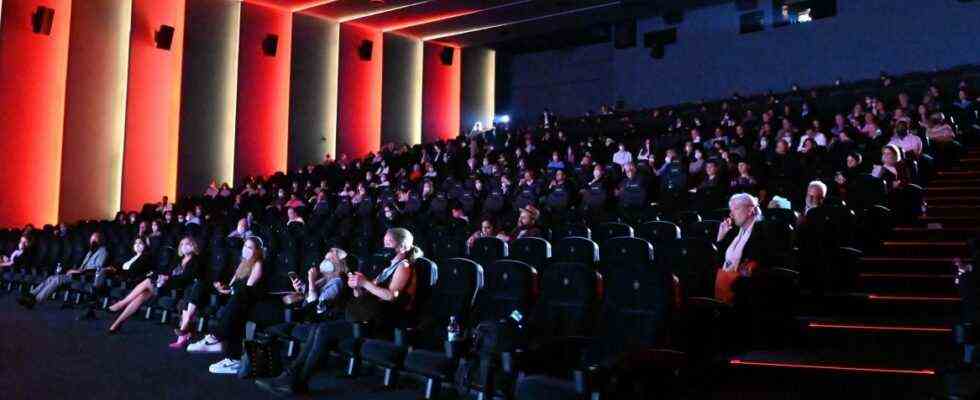Whether Nomadland, Der Rausch, Cruella or Black Widow: There is no shortage of films and potential blockbusters that are worth seeing in this cinema summer. And while business is traditionally slow in the summer months, the bad weather would be very beneficial for cinema operators this year. And yet the movie theaters are only weakly utilized. The reason for this is the pandemic-related requirements, which in Bavaria not only require a mask to be worn on the square, but also a minimum distance of 1.5 meters between cinema-goers.
Closed groups of up to ten people are allowed to sit closer together as long as the seven-day incidence is below 50, as is currently the case. But people come in groups is rather the exception. The prescribed distance now means that the halls are only 25 to 30 percent full, even during main visiting hours, because rows are blocked and two seats have to be left free between the seats.
Most cinemas have reopened since July 1st. On the same day, the Munich Film Festival started in Mathäser with “Kaiserschmarrndrama”. And while the hall is usually jam-packed at such an appointment, the rows were sparsely occupied due to Corona. In the long run, the cinema operators say, this is not an acceptable condition. “Every day I open costs me money,” says Christian Pfeil, co-director of the Munich cinemas Arena, Monopol and Rio-Filmpalast, for example. He is currently mainly busy applying for funding to ensure the survival of the cinemas. “My job would actually be to bring people to the cinema.”
After eight months of closure, people longed to finally be able to see a film on the big screen again, but because of the low capacity, the screenings of popular films are quickly sold out. “It is terrible to send people away,” says Pfeil. He had hoped for rules “with a sense of proportion”. From his point of view, that would be a distance of about one meter. With the good ventilation of the cinemas and the mask requirement on the square, this is sufficient. That’s what Holger Trapp from City-Kinos thinks too. This would at least result in a utilization of 50 percent. At the moment, rows in the City Halls must also remain unoccupied. Trapp does not believe that the rules will be relaxed before the general election on September 26th.
The Main Association of German Film Theaters (HDF) refers to a study by the TU Berlin, which measured a low level of aerosol pollution in cinemas in which, unlike in bars, people do not speak. In an open letter last week, the cinema operators asked politicians to adjust the corona rules. “In view of the ongoing vaccination campaign, we have to find new rules for dealing with the virus,” said the letter that the association published on its homepage at hdf-kino.de. The applicable hygiene concepts have been implemented across the board, contact details have been recorded for each seat and the responsibility towards guests and employees has been “fully met” – which, however, has led to an average maximum capacity of 30 percent. “It has been proven that it is not the cinemas that are responsible for the increased number of new infections and the rising incidence,” argues the cinema lobby.
But how should it go on? Should the cinemas be allowed to be full again when the employees check the visitors whether they have either been vaccinated, recovered or tested? From the point of view of Andreas Hein, technical director of the Royal Filmpalast on Goetheplatz, this would hardly be feasible. To do this, you would have to laboriously check both the relevant evidence and the IDs of each guest. “It takes forever,” says Hein. Like the HDF Association and his colleagues from the other Munich cinemas, Hein also points out that no infection has yet been documented in a cinema and speaks out in favor of uniform nationwide corona rules for his business.
The greatest fear that all cinema operators harbor, however, is that if the incidence is high, they will have to close completely again. The HDF warns that this should never happen. Andreas Hein is not only concerned about the cinemas. “If it closes again, I see dark black for the gastronomy and the entire event industry,” he says.

